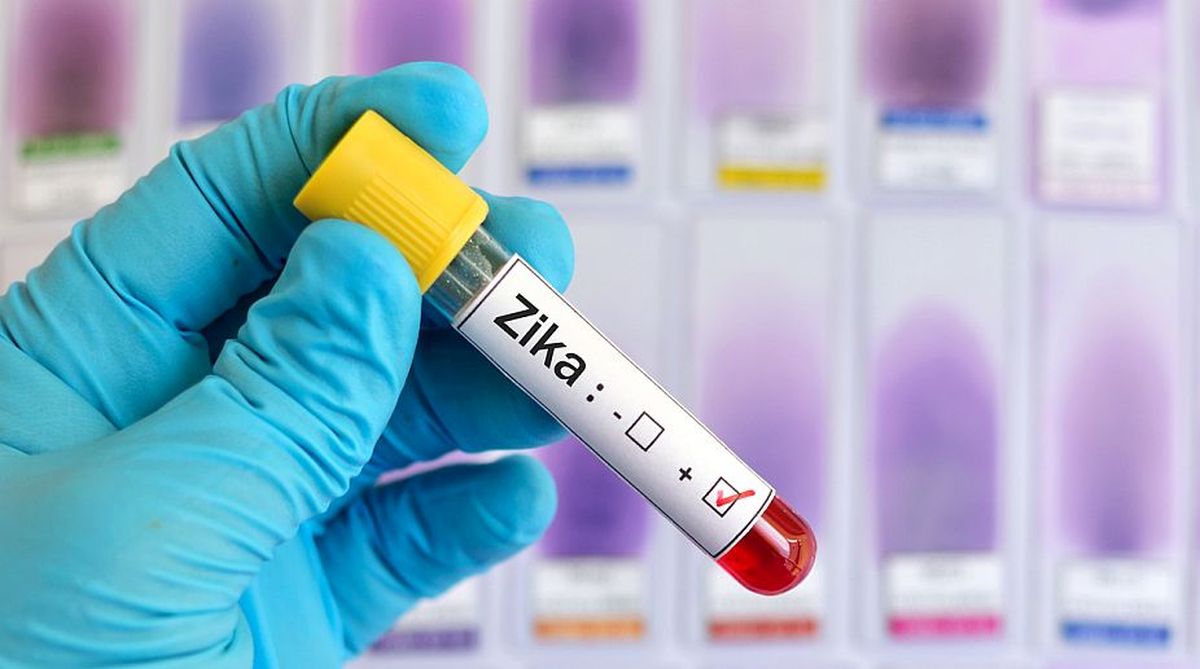Fresh mosquito samples have been collected from various parts of Jaipur by a team from the National Institute of Malaria Research (NIMR) as the number of Zika patients in the Rajasthan capital rose to 51.
Of the total patients who have tested positive for the Zika virus, 11 are pregnant women, sources at the Union Health Ministry said, adding that after Shastri Nagar area, three students residing at Rajput hostel in neighbouring Sindhi Camp have tested positive.
Advertisement
The Zika virus has already been found in some mosquitoes taken as samples from Sindhi Camp while few mosquitoes collected from densely populated Shastri Nagar had already been found to be carriers of the virus leading to suspicion they are behind the spread of the infection.
The first case had surfaced on September 22 when an 85-year-old woman with no travel history tested positive for the disease.
Fogging and other anti-larvae activities are being carried out in the Shastri Nagar area to prevent the spread of the virus.
Earlier, a health department official had said 30 of the total cases were doing fine after treatment.
At a review meeting held on Friday, measures taken to contain the situation were discussed. The department has also issued an advisory for pregnant women staying outside Shastri Nagar not to visit the area.
A control room has been activated at the National Centre for Disease Control to monitor the situation.
Zika virus disease is caused by a virus transmitted primarily by Aedes mosquitoes, which bite during the day. This is the same mosquito that transmits dengue, chikungunya and yellow fever.
It was first identified in Uganda in 1947 in monkeys and later found in humans in 1952 in Uganda and the United Republic of Tanzania.
Zika virus disease is an emerging disease currently being reported by 86 countries worldwide.
A large outbreak of rash illness, soon identified as Zika virus infection was reported from Brazil in March 2015 and later in July, same year, it was found to be associated with Guillain-Barré syndrome.
Signs and Symptoms
Symptoms of Zika virus disease are similar to other viral infections such as dengue, which include fever, skin rashes, conjunctivitis, muscle and joint pain, malaise, and headache which lasts for 2-7 days, a WHO report has said. Majority of the affected people do not develop any symptoms.
The incubation period (the time from exposure to symptoms) of the viral disease is estimated to be 3–14 days.
During pregnancy, Zika virus infection causes microcephaly and other congenital abnormalities in the developing fetus and newborn. It also results in pregnancy complications such as foetal loss, stillbirth, and preterm birth, the WHO has said.
Microcephaly is caused by underlying abnormal brain development or loss of brain tissue. Child outcomes vary according to the extent of the brain damage.
In adults and older children, the infection is said to trigger Guillain-Barré syndrome, neuropathy and myelitis.
Transmission
Apart from the bite of an infected Aedes mosquito, Zika virus is also transmitted from mother to foetus during pregnancy, through sexual contact, transfusion of blood and blood products, and organ transplantation.
Diagnosis
Laboratory tests of blood or other body fluids, such as urine or semen can only confirm the presence of the disease.
Treatment
Currently, there is no treatment available for Zika virus infection or its associated infections.
People with symptoms such as fever, rash, or arthralgia should get plenty of rest, drink fluids, and treat pain and fever with common medicines. If symptoms worsen, they should seek medical care and advice.
Pregnant women living in infected areas or who develop symptoms should seek medical attention.
Prevention
Protection against mosquito bites during the day and early evening is a key measure to prevent Zika virus infection.
Eliminating mosquito breeding sites is also important which includes, covering water storage containers, not allowing water to stand in flower pots, and cleaning up trash and used tires.
Larvicides and insecticides are also advised to reduce mosquito breeding.
The WHO has recommended that sexually active men and women be counselled and offered a full range of contraceptive methods to be able to make an informed choice about whether and when to become pregnant in order to prevent possible adverse pregnancy and fetal outcomes.
(With agency inputs)











